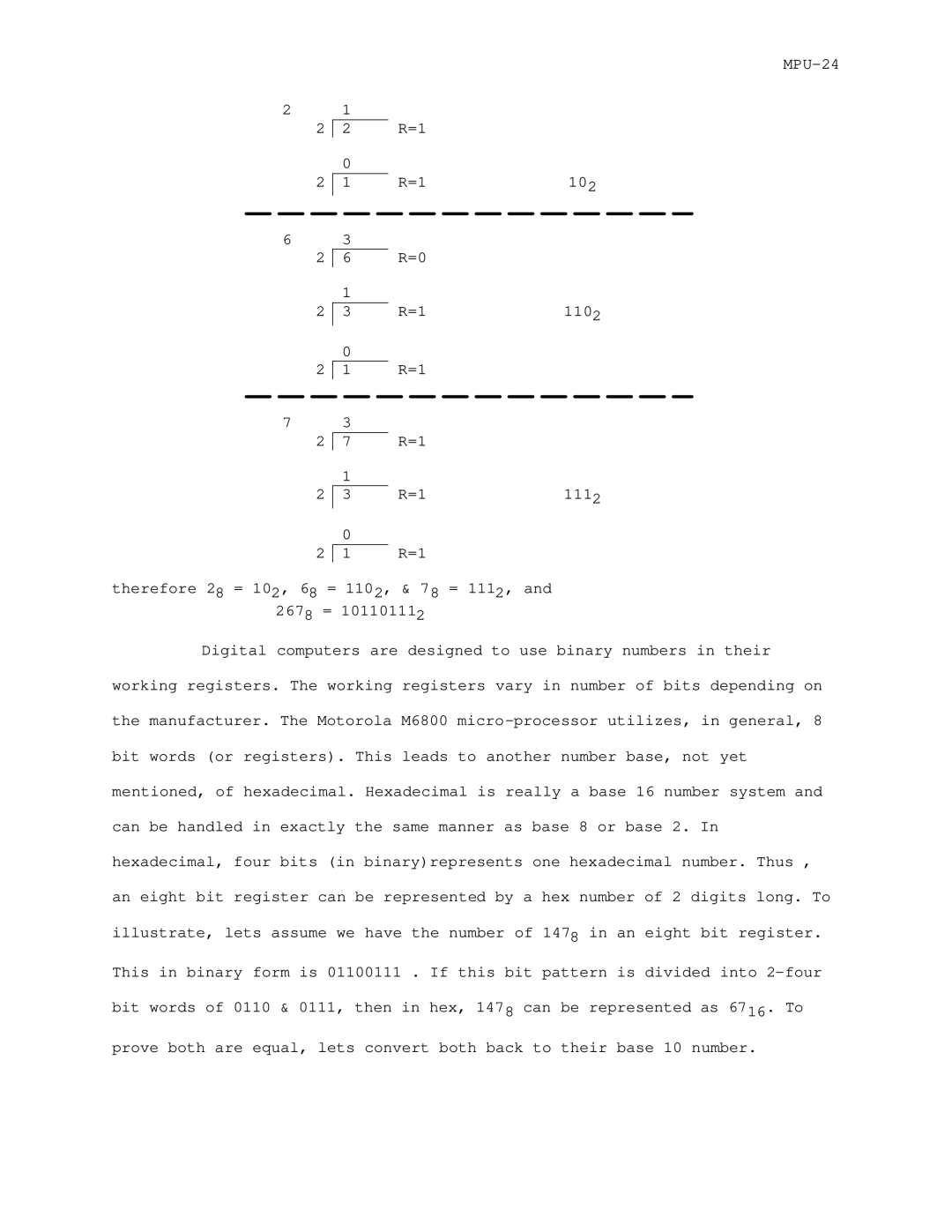102
1102
1
2 R=1
0
1 R=1
3
6 R=0
1
3 R=1
0
1 R=1
7 | 3 | | |
2 | 7 | R=1 | |
2 | 1 | R=1 | 1112 |
3 |
2 | 0 | R=1 | |
1 | |
therefore 28 = 102, 68 = 1102, & 78 = 1112, and 2678 = 101101112
Digital computers are designed to use binary numbers in their working registers. The working registers vary in number of bits depending on the manufacturer. The Motorola M6800 micro-processor utilizes, in general, 8 bit words (or registers). This leads to another number base, not yet mentioned, of hexadecimal. Hexadecimal is really a base 16 number system and can be handled in exactly the same manner as base 8 or base 2. In hexadecimal, four bits (in binary)represents one hexadecimal number. Thus , an eight bit register can be represented by a hex number of 2 digits long. To illustrate, lets assume we have the number of 1478 in an eight bit register.
This in binary form is 01100111 . If this bit pattern is divided into 2-four bit words of 0110 & 0111, then in hex, 1478 can be represented as 6716. To
prove both are equal, lets convert both back to their base 10 number.

